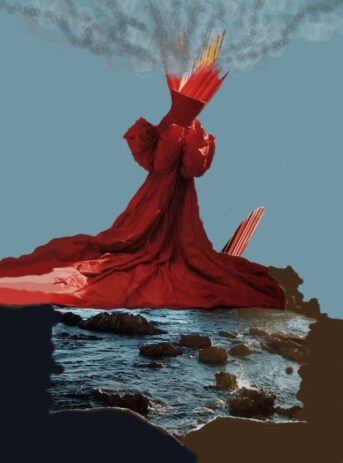
(Image by Cydney M Lewis)
Instead of the COVID-19 cutting back Chicago’s arts scene, it has inspired more opera and theater performances and more exhibits. Part One spotlights opera. Part two looks at the exhibits on now and opening. Part Three draws curtains back from formerly dark stages.
The Lyric Opera of Chicago will welcome audiences back in 2021 to a refurbished Opera House with crowd pleasing, re-imagined favorites and its first mainstage season Spanish language opera.
The Chicago Opera Theater will be mixing a favorite with new and not heard here before operas in its 2021-22 season.
And let’s have a drum roll for the Opera Festival of Chicago, a newly formed group of artists who are already filling a summer festival void with three productions.
Maestro Enrique Mazzola opens the season with Verdi’s Macbeth Sept 17-Oct 9, followed by Donizetti’s The Elixir of Love Sept. 26-Oct 8. Then Mozart’s Magic Flute will be Nov. 3-Nov. 27 and Catan’s Florencia en el Amazonas, Nov. 13-Nov. 28. More announcements will be made about the second half of the 2021-22 season.
COT, as it’s popularly known, opens with Bizet’s Carmen Sept 16 and 18 at Harris Theater for Music and Dance, followed by Adamo’s Becoming Santa Claus, Dec. 11, 17 and 19 at the Studebaker Theater. The season ends with Errolyn Wallen and Deborah Brevert’s Quamino’s Map April 23, 29, and May 1, also at Studebaker Theater.
Newly formed to introduce Chicago audiences to Italian operas they likely have not heard before, the artists hope to make the Festival an annual draw similar to those in Spoleto and Verona.
The Festival opened with Ermanno Wolf-Ferrari’s Il Segreto di Susanna (Susanna’s Secret), July 24 at the Athenaeum Theatre.
Then it will do “Dante 700,” at Artifact Events in Chicago’s Ravenswood neighborhood, July 28 and July 29. Inspired by Dante’s “Divine Comedy,” the program is a vocal salute to the famed poet, writer and philosopher on the 700th anniversary of his death.
The Festival ends Aug. 5 with Puccini’s Il tabarro (The Cloak) performed at Thalia Hall in Chicago’s Pilsner neighborhood.
Going to different neighborhoods is part of the Festival’s mission statement which reads, in part, “we aspire to: generate an inquisitive operatic appetite within Chicago audiences; make our work – and its cultural context – accessible to a wide audience; provide a stimulating and inspirational environment of Italian opera for artists and audiences alike…
Jodie Jacobs
